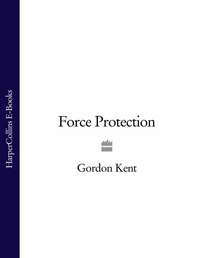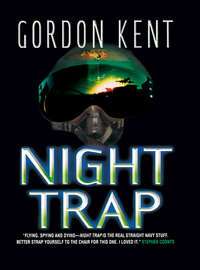
Полная версия
The Spoils of War
He snapped back to the computer. His hands were trembling. He did not raise his eyes to meet Ben’s.
The documents in front of him were recent surveillance findings of the target, clearly much altered. They’d had a certain amount of information deleted, but they were thorough, carefully annotated. Exactly what he’d need to plan his operation.
The next file was a clean summary of the target’s ties to al-Qaida and his location in the financial hierarchy. To Alan, it was like reading an academic paper with no footnotes. Everything was neat and tidy—the target’s role, his family relations, his bank accounts. To Alan, it stank. Intelligence was never that simple. Terrorists were never that simple. He looked up, straight into Ben’s smile.
“Okay, you pass. You really are an intel officer. You had me worried.”
“This is like a document you send to a briefer.”
“Give that man a cigar.” Ben paused, clearly pleased with his phrase. “There’s more of the same. It was pushed on us. We decided to tell your people through you. I’m going to talk out of school—that’s your phrase, yes? Okay, out of school, under the rose—we’re a secretive lot, we have a great many phrases for this. Okay? The surveillance reports, his location—I’ll back those. My people, or people I know, did those. The background, the bank accounts, the summary—not ours, okay? I can guess, but I won’t—you don’t want to criticize your president. Same-same. Right?”
Alan was scrolling down the summary, looking at an Excel spreadsheet on banking that looked impressive as hell. Except that it was unsourced.
“Jesus.” Alan looked up self-consciously. “Ah, sorry.”
Ben smiled. “I think I’ve heard the name before.”
Alan’s eyes went back to the document and he grimaced. “I don’t get it. All this unsourced stuff.”
“But when you deliver it to your Central Command, it will become sourced. From Israeli military intelligence. Very trustworthy, yes? Maybe in some circles, more trustworthy than your own CIA?”
Alan murmured “Jesus” again without thinking.
“We decided we wouldn’t do it without telling somebody—and somebody is you, Commander. They try and fuck us. Okay, we’re proud in the military. We don’t trade shit unless we mean to fuck somebody. We ask for you. ‘Send the guy running the operation.’ So we—so I can have this conversation. There it is. It’s political. Somebody wants this man. Is he al-Qaida? I have no idea. But I think if he is, there would not be all this amateur shit in the package.”
Alan shook his head slowly. “I haven’t seen what I brought you.”
Ben held up his hand, balanced it, teetered the palm slowly up and down. “Same-same. Some shit.”
“I didn’t see it. Not my stuff.”
“Of course not. Me, I’m a meddler. I won’t do one of these things, these ‘exchanges,’ without reading everything.”
Alan shrugged. “We’re not like that.”
Ben smiled. “No? What’s to stop a double agent from filling that data stick with stolen secrets on stealth technology and giving it to you to pass? Nothing simpler.”
That idea had never occurred to Alan, whose hands froze on the keyboard.
Ben continued, “May I give you a piece of advice, professional to professional? If they won’t let you read the material, refuse the meeting. Let them find another Patty.”
“Patsy,” Alan said automatically. “Does our stuff pick up authenticity, too? I mean, what I delivered—”
“Will be devoured by our politicians. Because it comes from US intelligence.”
Alan started pressing the keys that would dump the data files into his stick. “I don’t like being used.”
Ben nodded. A slow smile spread over his face. “Good. I was afraid you wouldn’t listen.” He paused and said, “There’s more than one Israel.”
“I’m getting that idea, yeah.”
“I wish we had more time to talk—” Ben said. He rose to his feet. “You are in a hurry.”
Alan collected his bag, rested his hands on the seat back. “Maybe I’d be more receptive if I hadn’t been grabbed by other Israelis yesterday.” He shrugged, nothing to lose. “Or followed here by a surveillance team.”
Ben winced. “Not mine.”
Alan shrugged again, because it made no difference. “Thanks for the heads-up on politics. I believe you. Okay?” He was tempted to unburden; life since Nine-Eleven had left him with more reservations about his own profession than the rest of his career combined, but Ben was not the man. “You going to be in trouble over this? You know I’ll put in a contact report.”
Ben smiled. “As will I. May I tell you something that will surprise you, Commander? This is the start of something. I dislike the politicization of intelligence. I love my country. I will not sit still. Now, I fight back. And not just here.”
When they shook hands at the door, Ben gave him a slip of paper that proved to have his real name—Colonel Benjamin Galid—and a phone number. “In case,” he said.
Alan left before it could get any worse. Because he no longer knew what to believe, except that too much of it had resonated.
That day, a Palestinian gunman killed six people in Israel and wounded a score of others. The crowd beat him and the police killed him. The Martyrs Brigade took credit for the attack.
That evening, the Craiks left Tel Aviv for Bahrain.
8
Cyprus
For the first two days on Cyprus, Rashid didn’t even look for Saida. He spent the Sabbaths of three religions living from phone to phone. His new friends, Zahirah and Ali, had moved him briskly around the island, passing him from one Palestinian business to another. He learned a routine and some basic habits of caution. And each day, at times he had memorized back in the concrete building in Gaza, he used a cell phone or a pay phone to call certain numbers where his new friends waited to help him. If he used a cell phone, he discarded it after the call. If he used a pay phone, he could never use that one again.
Sometimes, it was very exciting. Other times, it was like living with his mother.
In Famagusta, he found a tourist shop with novels in English. He bought a book called A Perfect Spy from the money he had taken from Salem’s coat, which he kept carefully separated from the money given to him by Ali for “operational expenses.”
The English in the novel was difficult, but the story was excellent. It passed the time between movements.
On Sunday, Zahirah directed him to the ferry docks at Kyrenia.
“Your friend has purchased a ticket on a ferry to Athens,” Zahirah said. She sounded very pleased. “You will go to the ferry, purchase a similar ticket, and follow her. Call us once you have located her.”
He arrived early in the evening and watched the passengers go on board, and he never saw her. When the ferry was less than an hour from sailing, he called another number for instructions. This time Ali directed him to board the ferry. He seemed sure that Saida would be on it. And he taxed Rashid with an unnecessary communication.
“Locate her,” his new friend said. “Don’t approach her and don’t let her identify you. Don’t call every time you are nervous. Call when you have something to report.”
Rashid did as he was told.
Washington
Standing in front of his mirror, Ray Spinner had thought he looked terrific in his new red-white-and-blue suspenders. Saturday seemed just the day to wear them—only the real gunners there on Saturday—but when he got to work he had a spasm of insecurity and didn’t dare take his jacket off. Five minutes later, he went to the men’s room and removed the suspenders and put them in a pocket, where they made an unsightly bulge. Plus his pants wouldn’t stay up.
Back in his cubicle, there was a message from McKinnon: See me. Spinner slipped the suspenders into a desk drawer and headed out at speed. It occurred to him—momentary flash of anger—that but for McKinnon, he’d be wearing the suspenders and wouldn’t have to hold his pants up with one hand.
McKinnon was standing behind his desk reading a book. He was wearing brown suspenders and looking both professorial and powerful, as if he might have been one of those Oxbridge types who were also MI5 in the days of Burgess and MacLean. “Hmmm?” he said without looking up.
“You wanted to see me.”
McKinnon read a few more words and looked up over his glasses and apparently recognized Spinner. “What’s new in Israel?” he said.
“It’s cryptology. The dead man was a Navy cryptologist; it looks like he gave up what he knew to his Palestinian buddies and Mossad got hold of it.”
“What’s your evidence?”
“Message traffic is heavy. It all says cryptology.”
“Are you sure?”
Spinner hesitated. “Of course I’m not sure!” he said. He was shocked that he let his own annoyance show.
“That’s a start. I’m not sure, either. When the hounds start chasing their tails, I tend to be a little skeptical. I think maybe something else is in play.” He smiled one of those meaningless smiles that lift only the corners of the mouth. “Off you go.”
Spinner blurted out, “Do you know something I don’t?”
McKinnon was back in his book. “I certainly hope so.” He waved Spinner away.
Back in his cubicle, Spinner frowned at the carpet-covered wall for some minutes and thought that he really shouldn’t take it anymore. McKinnon was a supercilious shit. On the other hand, he liked and needed the job.
He had gone to a Barnes and Noble and bought Leo Strauss’s The City and Man because it was the thinnest Strauss book on the shelf. He had been dipping into it. It was heavy going for a man whose idea of a book was a thriller. He had almost self-destructed on a paragraph that went on for two pages. He was put off by sentences like “For Aristotle political inequality is ultimately justified by the natural inequality among men,” because he had been raised on “All men are created equal,” but he assumed that no matter what sentences like these meant, Strauss would pull a democratic rabbit out of his philosophical hat. He didn’t want to face the possibility that neither Strauss, Aristotle, nor Plato was in fact democratic.
Naples
By Saturday, Dukas had Salem Qatib’s bio and knew that he had studied classics and archaeology at the University of Michigan but hadn’t taken a degree. Dukas tried to get the university on the phone, but on weekends academics are resting their brains. He made notes on what else he knew about Qatib: emigrated to the US with his parents at fourteen; his father returned to Palestine when Salem was seventeen and the parents later divorced; Salem did his Navy stint then and followed it with his college work, remaining a reservist. Then he’d gone off to Palestine himself and had kept a fairly clean record, except for whatever Mossad knew about him and was now not giving up—their current stance was “Who, me? Never heard of him!” The CIA had Qatib’s name but was saying that other than his being a Palestinian and having attended an anti-settlement rally in Gaza, they weren’t interested in him.
“Well, somebody was interested in him,” Dukas said to Triffler.
“Or Al Craik’s police lady is wrong about the Mossad involvement.”
“You think Al was kidnapped by four guys who just happened to be in the neighborhood?”
“Stranger things have happened.” Triffler checked his watch. “We have a meeting downtown in half an hour.”
Конец ознакомительного фрагмента.
Текст предоставлен ООО «ЛитРес».
Прочитайте эту книгу целиком, купив полную легальную версию на ЛитРес.
Безопасно оплатить книгу можно банковской картой Visa, MasterCard, Maestro, со счета мобильного телефона, с платежного терминала, в салоне МТС или Связной, через PayPal, WebMoney, Яндекс.Деньги, QIWI Кошелек, бонусными картами или другим удобным Вам способом.







